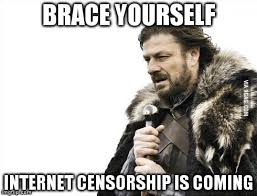Court Enjoins Trump Administration’s Attempt to Kick TikTok Out of App Stores–TikTok v. Trump

This case addresses the administration’s executive order (EO) to kick TikTok out of U.S. app stores. The EO relies on the International Emergency Economic Powers Act (“IEEPA”), but that statute doesn’t allow the administration to restrict “information or informational materials” or “personal communication[s].” The court grants TikTok’s injunction on statutory grounds, without addressing the obvious First Amendment problems with the administration’s ban.
The court says that TikTok users’ content constitutes “information or informational materials,” and “the purpose and effect of the Secretary’s prohibitions is to limit, and ultimately reduce to zero, the number of U.S. users who can comment on the platform and have their personal data on TikTok.” The court added that TikTok as a “transmitting medium is inextricably bound up with and exists primarily to share protected informational materials.”
As for the personal communications exception, “It is undisputed that the Secretary’s prohibitions will have the effect of preventing Americans from sharing personal communications on TikTok. ”
The court summarizes:
In sum, the TikTok Order and the Secretary’s prohibitions will have the intended effect of stopping U.S. users from communicating (and thus sharing data) on TikTok. To be sure, the ultimate purpose of those prohibitions is to protect the national security by preventing China from accessing that data and skewing content on TikTok. And the government’s actions may not constitute direct regulations or prohibitions of activities carved out by 50 U.S.C. 1702(b). But Plaintiffs have demonstrated that they are likely to succeed on their claim that the prohibitions constitute indirect regulations of “personal communication[s]” or the exchange of “information or informational materials.”
With respect to TikTok’s other arguments, the court adds that “Plaintiffs appear to have presented at least serious questions on their other claims.” This sounds like a clear warning to the DOJ that it cannot successfully defend the EO, but the Barr-led DOJ is likely to ignore such feedback.
As for irreparable harm, the anti-TikTok EO slowed user downloads and drove users to other platforms permanently. These adverse consequences also drove down TikTok’s valuation, which helped Oracle and Walmart pick up an equity stake at a discounted price.
This decision reaches the same conclusion as the WeChat case. However, the WeChat judge based the injunction solely on First Amendment grounds; this judge based the injunction solely on statutory gr0unds. Collectively, the two opinions create mutually reinforcing protections for WeChat and TikTok. The government must overcome both the statutory and constitutional problems to uphold the respective EOs, and I doubt the DOJ can overcome either. I see that as good news tactically, but strategically, remember that the energy we spend fighting obviously illegitimate EOs is diverted away from the half-dozen must-fix-now existential threats facing our country.
Although this ruling was slightly less rushed than Judge Beeler’s work on the WeChat opinion, the judge and his clerks still made heroic efforts to quickly prepare this opinion despite the administration’s completely avoidable delay that created the urgency. Thank you to the court staff for their hard work, and huzzah for the federal court system that is still trying to keep America great.
Note: I believe both Google and Apple have stayed out of the court battles where judges are determining what Google and Apple can and cannot carry in their app stores. In other words, rather than fighting in court to vindicate their own speech rights, Google and Apple have been content to freeride on the hard work of others. Their inaction in response to Trump’s blatantly illegal and censorial moves isn’t surprising–incumbents just want to preserve their incumbency–but it is shameful.
Case citation: TikTok, Inc. v. Trump, 1:20-cv-02658-CJN (D.D.C. Sept. 27, 2020)
Pingback: CLIP-ings: October 2, 2020 – CLIP-ings()
Pingback: News of the Week; September 30, 2020 – Communications Law at Allard Hall()